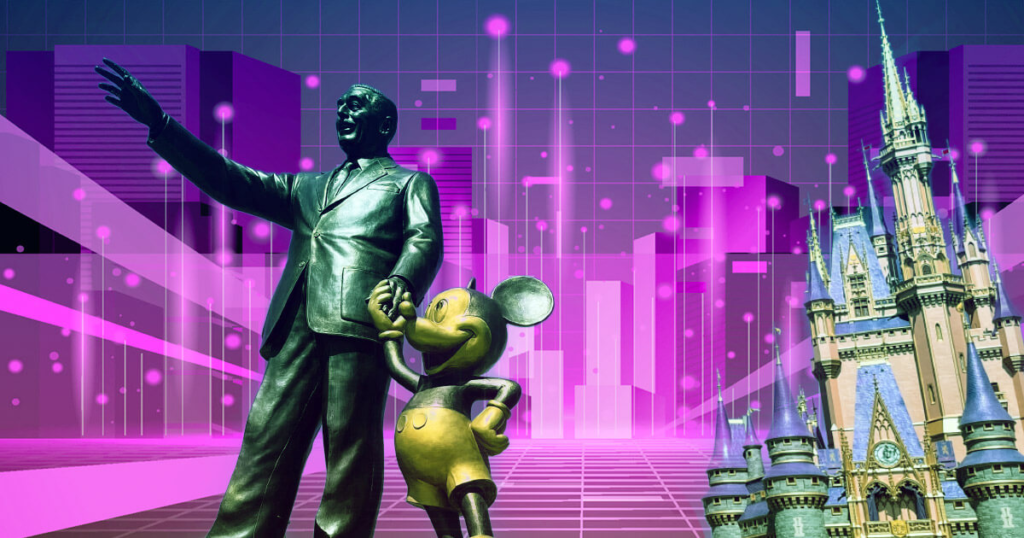We’ve all seen the insane jump in popularity and large-scale investment in the metaverse by corporations of every industry around 2-3 years ago. There were incredibly pitched visions of the potential that could be achieved. Just off the top of my head, I can recall Dana White of the UFC saying that they will host MMA fights in the metaverse, with virtual seating and attendance for fans from anywhere to attend. There was also the idea of a large-scale interactive world where each one of us would be able to strap into a headset from the comfort of our own home, being able to explore and meet people through virtual avatars. The ideas for this were endless, from luxury brands mentioning metaverse fashion shows, to big entertainment planning interactive experiences.
This developing technology was supposed to change the way we live, work, and learn, but fast forward to the present day, we have not seen much at all in terms of the metaverse’s development. In fact, there has been much more bad news than good, as there have been countless companies simply giving up on the technology.
In October of 2021, Facebook decided to change its name to Meta, in order to represent its focus shift to being on top of building the metaverse. This was a major change for the company, as we all knew it as the parent company to the social media page. Meta has had its fair share of investments into developing technologies in the past. In 2014, Meta, then Facebook, purchased the company Oculus which was the leading manufacturer of Virtual reality headsets at the time. This was their first step into the development of the metaverse, before we even knew of such a concept. Though this technology on its own has proven to be a stable and popular market for Facebook over the years, including its transition to become Meta, VR headsets have shown their popularity in gaming especially. VR technology had later grown to be a big part of the metaverse’s future, as this would be the primary interactive input to the virtual world.

Meta had formed a specialized division to focus solely on its metaverse project, called Reality Labs and that division has lost nearly $24 Billion dollars over the past two years, as per a Washington Times report. With the emergence of another innovative technology on the horizon, generative AI, Mark Zuckerberg stated the following in a recent Facebook post, “We’re creating a new top-level product group at Meta focused on generative AI to turbocharge our work in this area. We’re starting by pulling together a lot of the teams working on generative AI across the company into one group focused on building delightful experiences around this technology into all of our different products,”. This could mean that Meta is cutting its focus down a bit on the metaverse, and onto the next hot technology. Generative AI has already become an integral part of many people’s lives, using it for work, school, and inquiries. It would be more a tangible effort for Meta to shift their focus, as generative AI has an actual outlook to be implemented into user’s workflows.

Disney was a good example of a major media and entertainment company to jump on the hype train of the metaverse, back in 2021. Bob Chapek, Disney CEO at the time, described it as a new opportunity to tell stories and produce content. There was not a specific use case announced for the metaverse team created within the company, but an outlook of what was to come. Just yesterday, March 28, 2023, Disney announced a large layoff of nearly 7,000 employees across its entities. This included the entire metaverse team of 50 employees, therefore killing any current development of the metaverse for Disney. This shows how the large drive for a potential major digital innovation at the time, ended up as a trip on the hype train for many companies. The idea at the time showed a lot of potential to revolutionize the way we consume digital entertainment, and still can in the distant future, but it seems as if that idea will be put on the back burner for now.

There are many ideas that are essential parts of the metaverse that still have an important role in the current state of digital innovation. These things include the development of Web3, cryptocurrency, NFTs, and virtual reality. All of these are emerging with somewhat valuable futures ahead, and have potential to grow into major parts of the future technological infrastructure ahead of us. The development of these may help the idea of the metaverse expand into what it was hoped of being. The current situation of the metaverse does not mean that it is dead, but that it just isn’t what we thought it was going to be so soon.